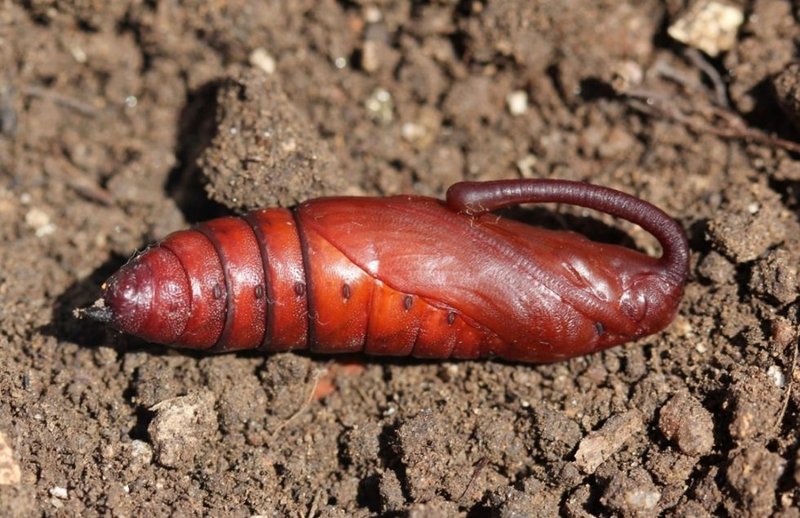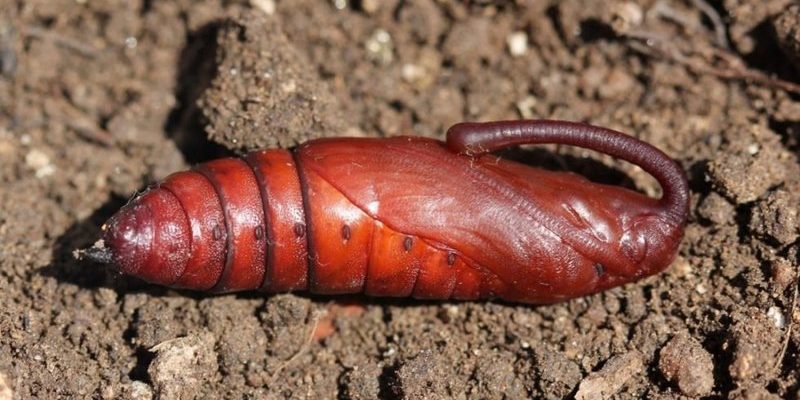
Think of hornworms like teenagers. They need the right “food” to grow strong and healthy, but they’re also picky about what they eat. While natural diets are often the go-to, the world of synthetic diets has opened up new possibilities that could change how we rear these fascinating creatures. A synthetic diet is like a pre-packaged meal—designed to deliver all the nutrients hornworms need without the fuss of fresh leaves or vegetables. But can they really get everything they need from this kind of diet? Here’s what the research says.
Understanding Hornworms’ Nutritional Needs
Hornworms are the larvae of the tobacco hornworm moth (Manduca sexta) and require specific nutrients for optimal growth. These little guys mainly feed on the leaves of plants, especially tomatoes and tobacco. Their diet plays a crucial role in their development, affecting everything from their size to their color.
So, what do hornworms need to thrive? Here’s a breakdown:
- Proteins: Essential for growth and development, proteins help hornworms build their body mass.
- Carbohydrates: These provide energy, enabling hornworms to move and grow.
- Fats: While they don’t need them in large quantities, fats are important for hormonal functions.
- Vitamins and Minerals: These micronutrients support overall health and are key for processes like molting.
Understanding these requirements is crucial when considering synthetic diets. It leads us to wonder: can a synthetic meal deliver all these important nutrients?
The Concept of Synthetic Diets
When we talk about synthetic diets for hornworms, we’re generally referring to specially formulated mixes made from various ingredients that mimic natural food sources. These diets are designed to be complete and balanced, providing all the nutrients hornworms need to grow without relying on fresh plants.
Now, you might be thinking, “Why not just use fresh leaves?” That’s a fair question! Fresh leaves can vary in nutrient quality based on their growing conditions, but synthetic diets offer consistency. They’re like the meal replacement shakes of the insect world—everything is pre-measured and mixed for optimal health.
Some popular brands, like **Reptilinks** or **Hornworm Diet** mix, have emerged in the market, and they are designed to be easy to use. Just mix with water, and you’re set. But, how do hornworms react to these diets?
Do Hornworms Accept Synthetic Diets?
Getting hornworms to switch from their leafy favorites to a synthetic diet can be a mixed bag. Honestly, it really depends on the individual hornworm and how accustomed it is to natural foods. Some hornworms take to synthetic diets without much fuss, while others might turn up their “noses” and refuse to eat.
Here’s a tip: when introducing a synthetic diet, try blending it with their usual food. This approach is similar to getting kids to eat veggies—sometimes, a little mix-in can make all the difference!
If they do accept the synthetic diet, you might find some advantages:
- Consistency: You’ll know exactly what they’re getting nutrient-wise.
- Convenience: No more hunting for fresh leaves every day!
- Reduced pests: Synthetic diets can reduce the risk of introducing unwanted insects into your habitat.
However, it’s important to keep an eye on them. If you notice any signs of distress or poor growth, it might be time to re-evaluate their diet.
Comparing Natural and Synthetic Diets
So, how does a synthetic diet stack up against a natural one? While synthetic diets can certainly fulfill the basic nutritional needs, there are some pros and cons to consider.
With natural diets, hornworms can benefit from the varying nutrients found in different plants. This diversity can support a more robust immune system. On the other hand, natural diets can also come with risks—pesticides, mold, or even just the lack of available food can pose challenges.
When it comes to synthetic diets, they’re designed to be safe and consistent. The potential downsides? Some owners feel that hornworms’ growth might not be as vigorous compared to a natural diet, and they might miss out on the complex flavors of their usual leafy snacks.
Here’s a quick comparison:
| Natural Diets | Synthetic Diets |
|---|---|
| Variety of nutrients | Controlled nutrient levels |
| Potential for pests | Less pest risk |
| Requires sourcing fresh plants | Convenient, easy to prepare |
| Can vary in quality | Uniform quality |
Ultimately, the best diet might be one that combines both methods to give hornworms a well-rounded experience.
Potential Issues with Synthetic Diets
Feeding hornworms synthetic diets isn’t without its challenges. While many hornworms have adapted well, some can experience problems, especially if their diet is switched too quickly or if the synthetic diet isn’t balanced correctly.
You might notice a few concerns, such as:
- Growth Stunting: If the diet lacks essential nutrients, hornworms may not grow as expected.
- Behavioral Changes: Some hornworms might become less active or refuse to eat altogether.
- Health Issues: A diet lacking in diversity can lead to deficiencies, impacting overall health.
That’s why monitoring their health when introducing synthetic diets is crucial. If you notice any red flags, consider consulting with an expert or reverting to a natural diet.
Best Practices for Feeding Hornworms
To ensure your hornworms thrive, here are some best practices for feeding:
1. **Start Slow:** If you’re introducing a synthetic diet, mix it with their usual food at first. This gradual transition can help ease them into the new diet.
2. **Monitor Growth:** Keeping track of their size and behavior will give you insights into how well they’re adapting. If they’re growing steadily and staying active, that’s a good sign!
3. **Check Ingredients:** When purchasing a synthetic diet, look for a product with balanced nutrition. Ingredients should include protein sources, vitamins, and minerals.
4. **Stay Clean:** Always keep their feeding area clean. This helps prevent mold and bacteria from developing, which could harm your hornworms.
5. **Consult Experts:** If you’re ever unsure, reaching out to a reptile vet or an entomologist can provide personalized advice.
Final Thoughts
So, can hornworms be fed synthetic diets? The answer is a bit nuanced. Yes, they can adapt to synthetic diets, and for many, it may even simplify their care. However, just like with any living creature, it’s essential to watch for signs of stress or health issues. Balancing their diet with both natural and synthetic options might be the key to keeping your hornworms happy and healthy.
In a nutshell, feeding hornworms synthetic diets can be a viable option, but knowing your hornworms and their needs is the most important part of ensuring their success. Whether you lean more towards natural or synthetic, the goal is building a thriving environment where your hornworms can flourish. Happy feeding!

